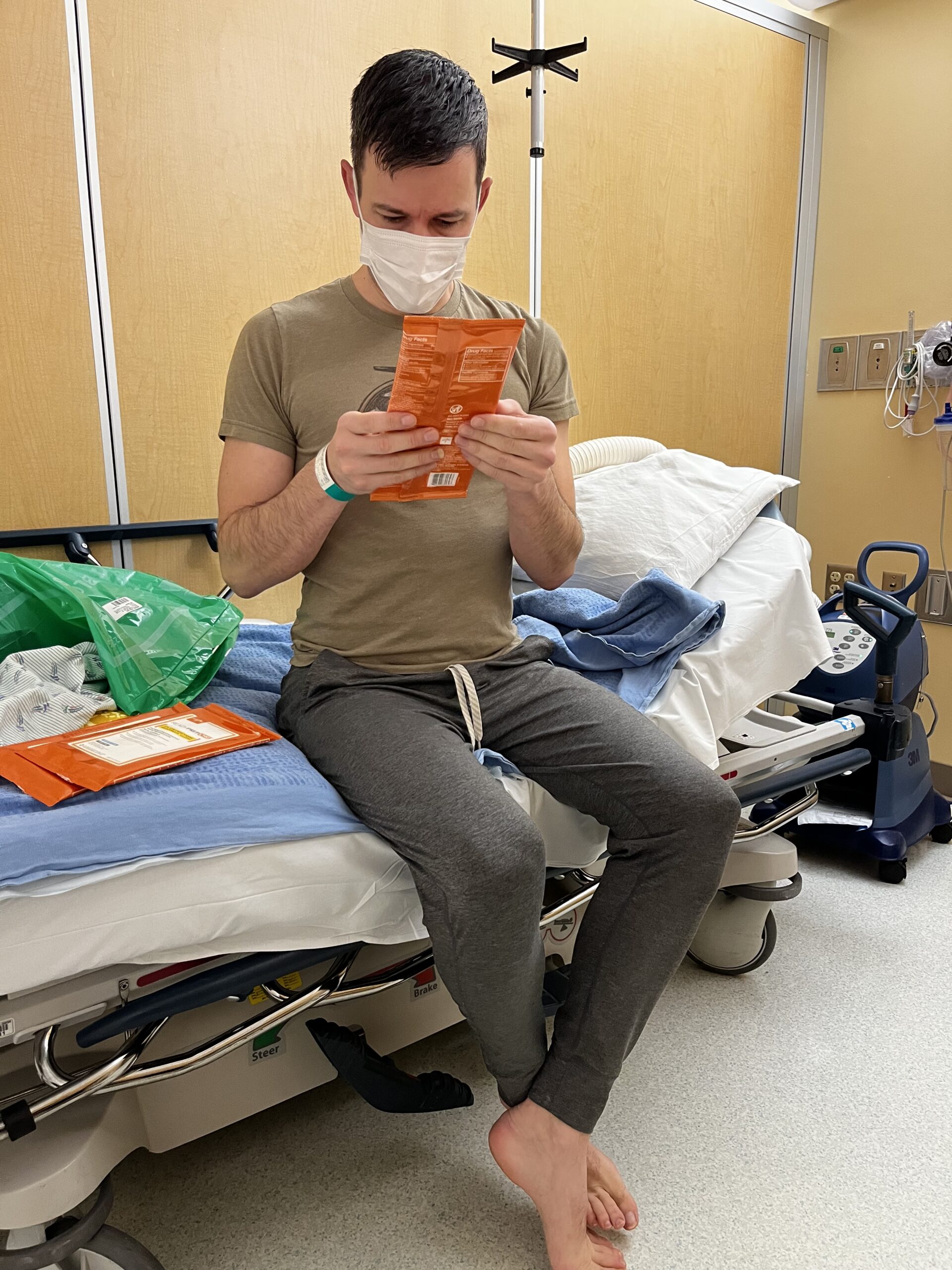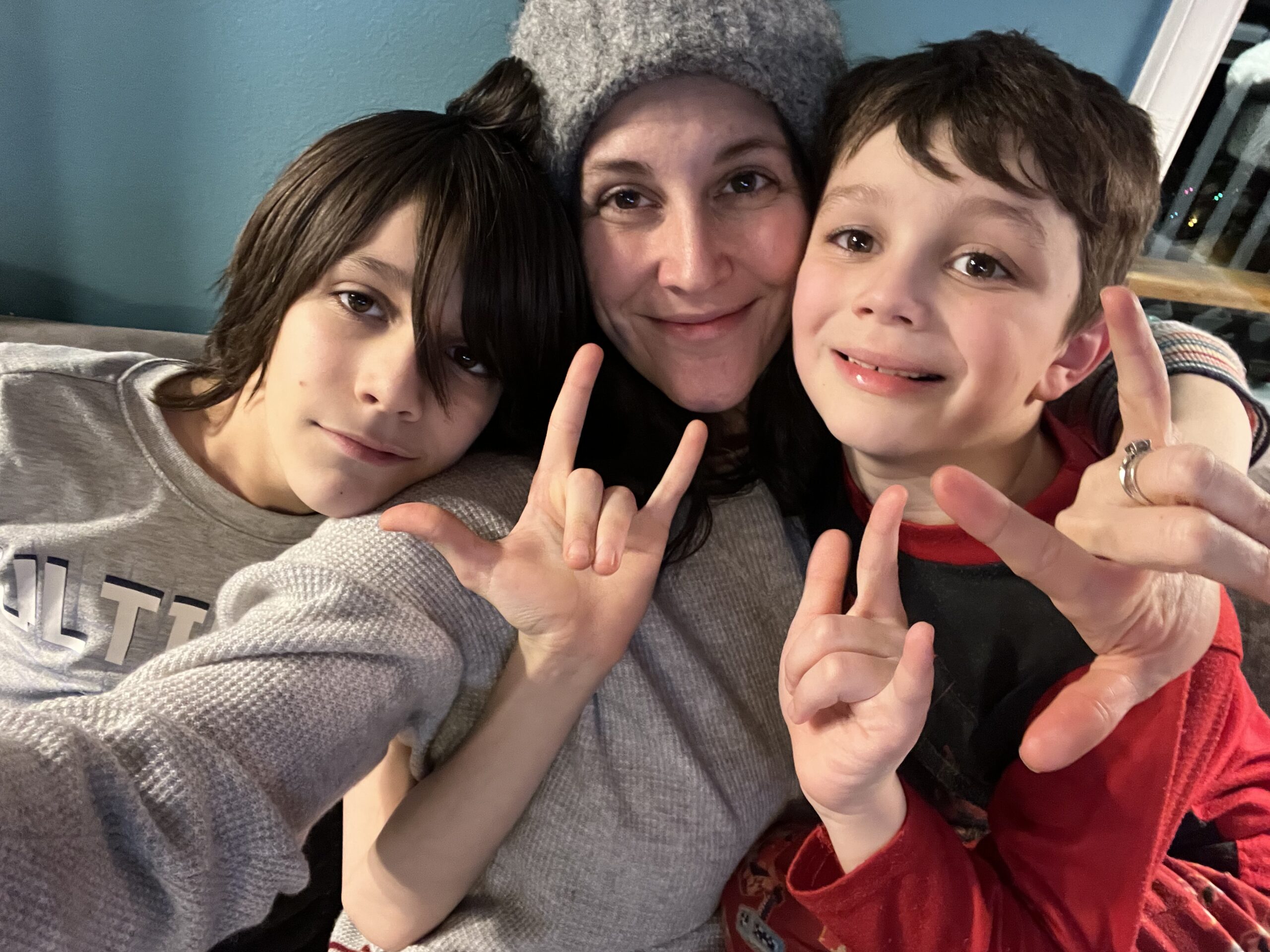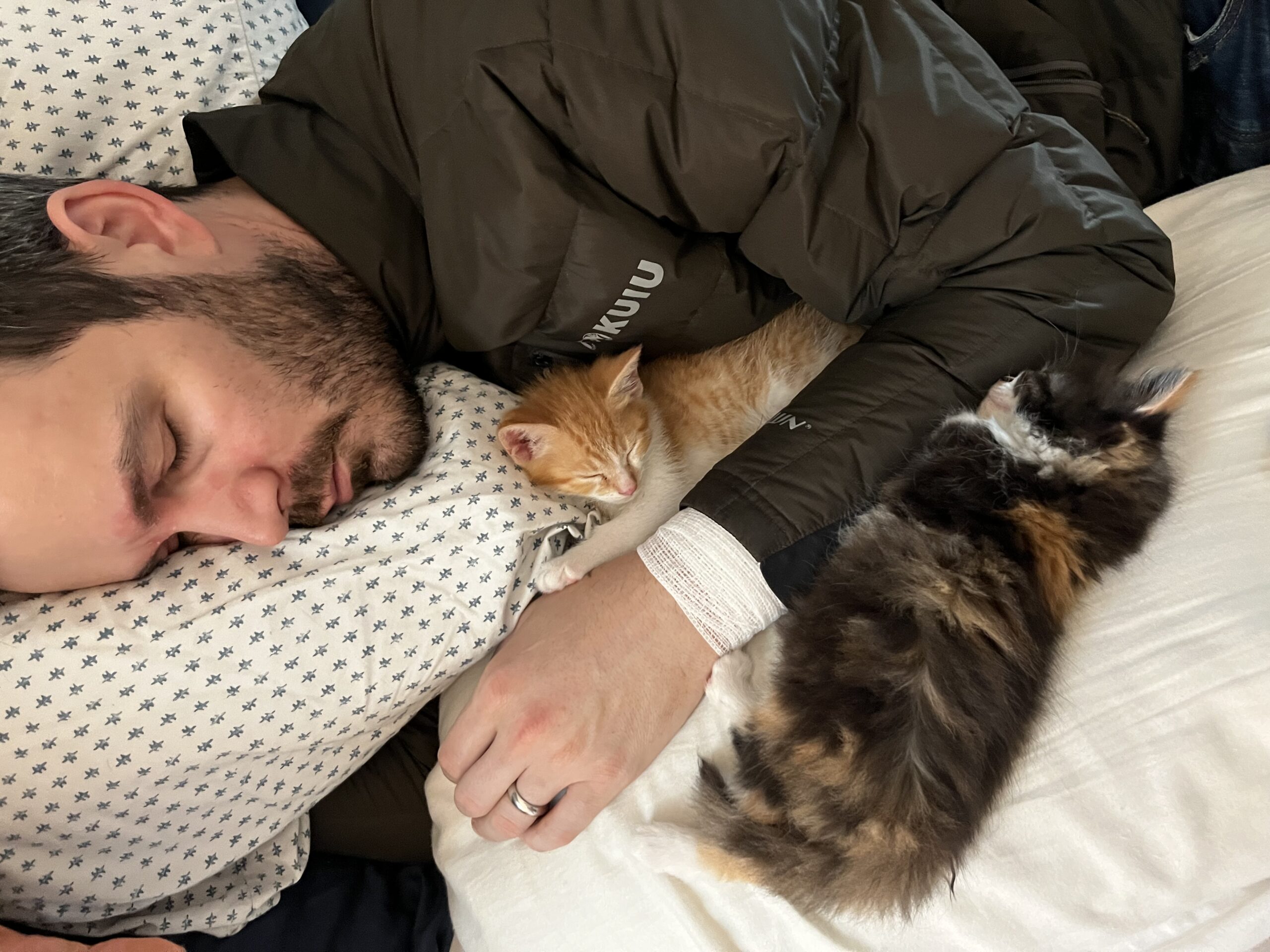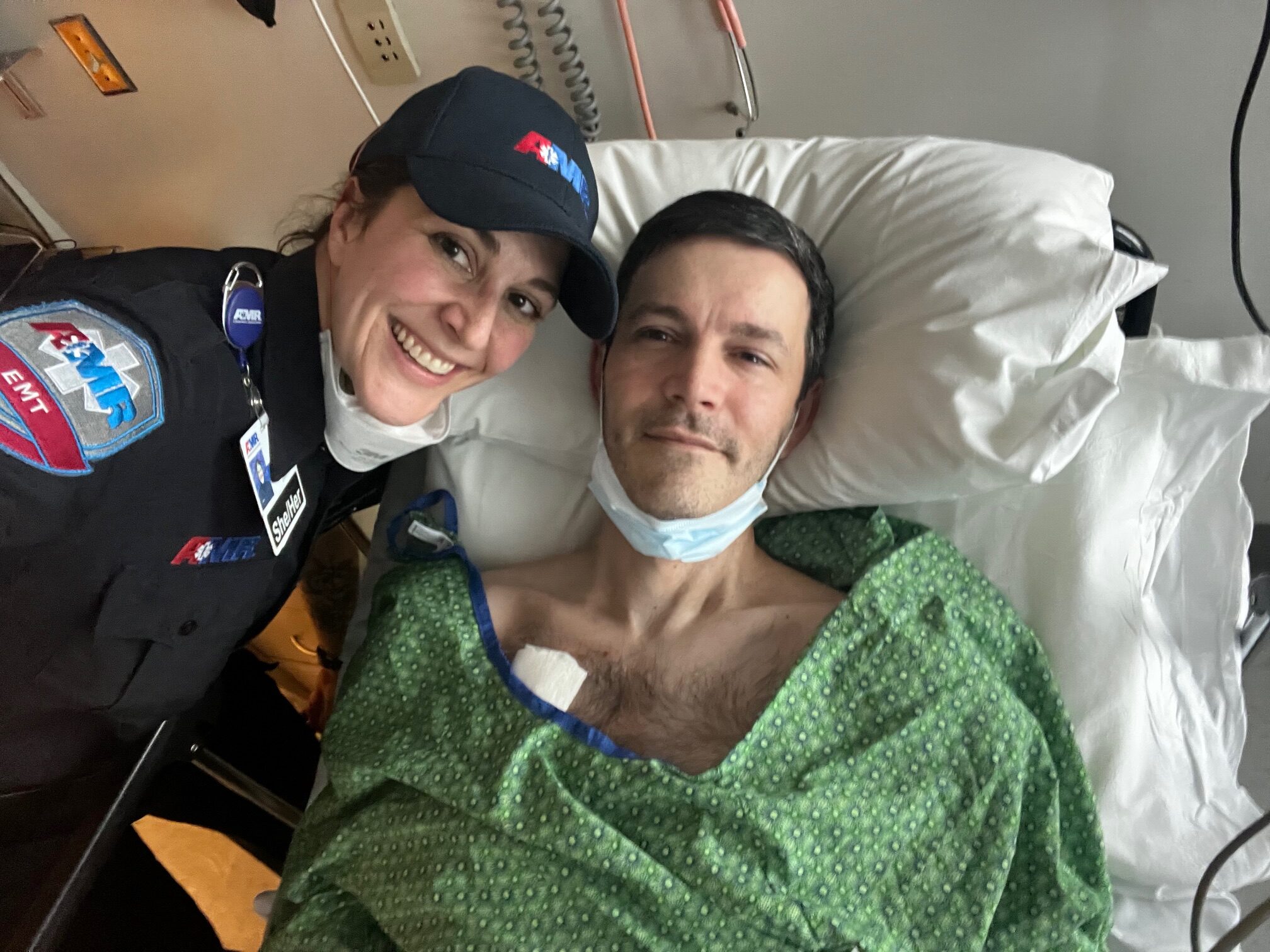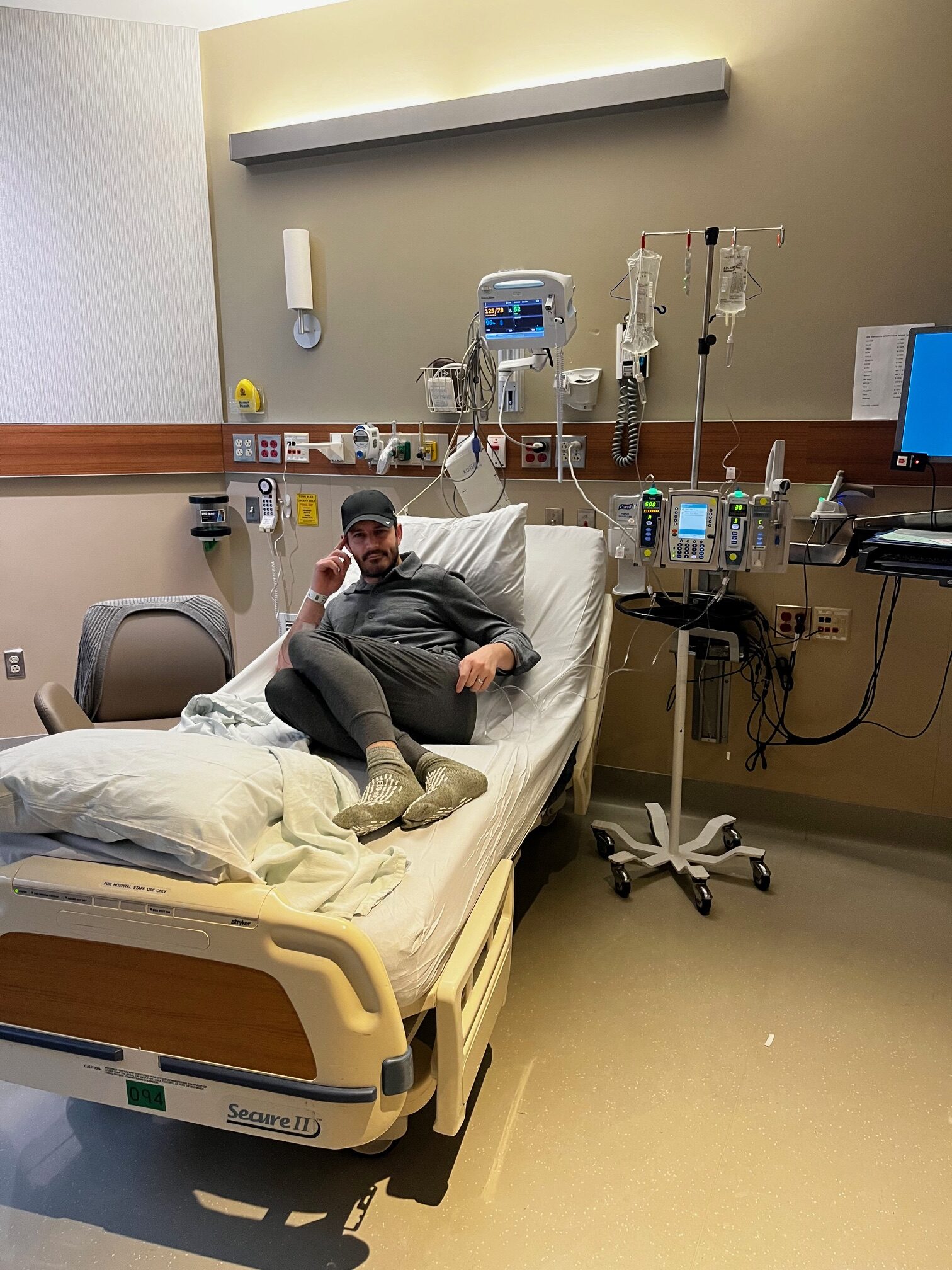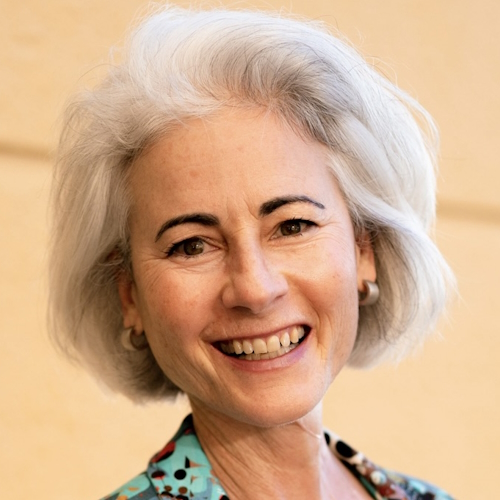Stage 4 Tongue Cancer and the Power of Speaking Up: Ryan’s Clinical Trial Journey
Ryan’s story is a powerful testament to resilience, support, and the complexities of living with stage 4 tongue cancer. He’s a husband and father to two boys, and balances family life with the demanding realities of his diagnosis, treatments, and emotional shifts.
Interviewed by: Taylor Scheib
Edited by: Chris Sanchez
Ryan’s cancer story began subtly, with a deceptively small white spot on his tongue, which was shrugged off during numerous dental visits. Life was busy, and it wasn’t until the spot wouldn’t heal that he sought an oral surgeon’s opinion. A biopsy confirmed his fears: stage 4 tongue cancer (squamous cell carcinoma of the head and neck). From there, his life transformed rapidly with surgeries, including a partial glossectomy (the removal of part of his tongue), neck dissection (the removal of cancerous lymph nodes in his neck), and reconstruction of his tongue. These procedures were followed by extensive rounds of radiation, chemotherapy, immunotherapy, and participation in clinical trials.

Ryan’s clinical trial experience at MD Anderson has been both hopeful and challenging. He debunks the myth about placebos in cancer trials, emphasizing that all participants receive the standard of care, with trials testing potentially more effective therapies. His trial opened new avenues in his treatment plan. This part of his experience highlights the critical role of clinical trials in advancing cancer treatment, offering patients like Ryan additional options beyond conventional methods.
Day-to-day life with stage 4 tongue cancer is layered with physical and emotional hurdles. Ryan travels weekly for his treatments, navigating the logistical and financial strains with the support of his family. The emotional weight is substantial — not just for him, but also for his wife and kids. He describes the emotional aftermath akin to grief, with friends and family often reacting as if he’s already gone, which adds to the complexity of living with an ongoing illness.
Ryan’s narrative sheds light on the unseen burdens carried by family and friends. His wife bears the brunt of emotional stress, managing her fears and the daily realities of their children’s lives. Ryan’s determination to stay engaged in his children’s lives drives him, even as he tackles the harsh side effects of treatment.
Ryan’s advice to others facing similar battles? Own your treatment. Speak up, advocate for yourself, and ensure your voice is heard in your care decisions. This proactive approach has been crucial in Ryan’s experience, helping ensure that he receives attentive and appropriate care.
Watch Ryan’s video to find out about:
- How a small white spot led to his stage 4 tongue cancer diagnosis.
- The emotional toll of cancer — not only on patients but also on their families.
- Ryan’s firsthand experience debunking myths about clinical trials.
- Weekly flights, family strains, and fighting for normalcy with cancer.
- Why Ryan believes hope isn’t enough — and about what really matters.
- Name:
- Ryan A.
- Age at Diagnosis:
- 39
- Diagnosis:
- Tongue Cancer (Squamous Cell Carcinoma of the Head and Neck)
- Staging:
- Stage 4
- Symptom:
- Lesion on the side of the tongue
- Treatments:
- Surgeries: partial glossectomy, neck dissection, tongue reconstruction
- Chemotherapy
- Immunotherapy
- Radiation
This interview has been edited for clarity and length. This is not medical advice. Please consult with your healthcare provider to make informed treatment decisions.
The views and opinions expressed in this interview do not necessarily reflect those of The Patient Story.

Inspired by Ryan's story?
Share your story, too!
More Head and Neck Cancer Stories
Vikki F., Head and Neck Cancer (Nasal Squamous Cell Carcinoma)
Symptoms: Nosebleeds that persisted for years, nose changed in shape, nasal pain, migraines
Treatments: Surgeries (subtotal rhinectomy, reconstruction surgery including radial forearm free flap, bone grafts, and cartilage), chemoradiation
...
Red S., Tongue Cancer (Squamous Cell Carcinoma of the Tongue), Stage 3
Symptom: Persistent tongue ulcer that increased in size
Treatments: Surgeries (partial glossectomy, flap surgery), radiation therapy
...
Alyssa N., Adenoid Cystic Carcinoma
Symptoms: Persistent jaw pain, lightning-like facial pain during the first bite of meals
Treatments: Surgery (tumor removal), radiation
...
Eva G., Oral Cancer, Stage 4
Symptoms: Sore on the tongue, which caused pain during eating and speaking; changes in the color and texture of the tissue where the sore was located
Treatments: Surgery (partial glossectomy, radical neck dissection, reconstruction), radiation
...
Teresa B., Recurrent Breast Cancer (Hormone-Positive), Oral Cancer (Lip Cancer), and Skin Cancer (Melanoma)
Symptoms: Lip cancer: chapped lips & a pimple-like growth on lip, breast cancer: enlarged left breast with lump, melanoma: none
Treatments: Surgeries (bilateral mastectomy with reconstruction, lumpectomy, craniotomy, Mohs, surgery, wide local excision), hormone therapy, radiation therapy
...
